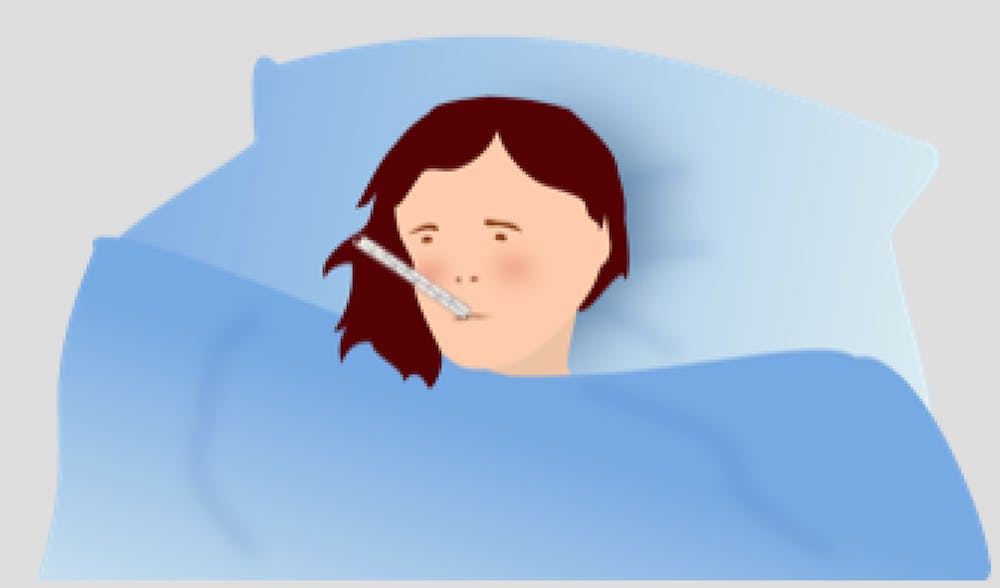By: Celine Thormann
It’s late fall/early winter, which can mean only one thing- flu season. Living in close quarters on a college campus full of sleep-deprived, stressed students who are probably not eating the best food makes this an ideal place for viruses like the flu and the common cold to live and spread. The tricky thing about viruses is that we don’t know how to cure them yet and are still searching. That means that when someone catches the flu, the only thing doctors can do is treat symptoms, like headaches and fever, which doesn’t actually end the infection. The flu kills about 12,000 to 49,000 people per year, most of whom are children, elderly people or those with compromised immune systems. Recent years have seen record numbers of deaths and hospitalizations due to the flu, with the 2017-2018 flu season being the worst flu season ever in the U.S. Perhaps you yourself have noticed an increase in the number of people with the flu, or maybe you’ve gotten it yourself. It is certainly noticeable that a lot of students around campus are sick right now, and it can be difficult for someone who is sick to avoid getting other people sick. So, how does global warming tie into all this? The two don’t immediately seem related. In fact, the flu virus thrives in cold temperatures and doesn’t spread nearly as well during mild winters like the ones we’ve seen in recent years. However, studies have shown that the worst flu seasons almost always follow mild winters. There are many reasons for this, but the main ones have to do with immunity. Every year, the Center for Disease Control (CDC) releases a new flu vaccine. It is tailored to the region it is released in, and it typically protects against two to three common strains of the flu. It is not always super effective, so only about 40 percent of American adults get the vaccine. They think that there is no point, despite evidence showing that the vaccine saves lives and that almost all flu deaths occur in people who have not been vaccinated. In mild winters caused by global warming especially, the effects of the flu are less obvious, so fewer people feel the need to get the vaccine. That means that when the next harsh winter comes, which usually does the next year, way fewer people have any sort of protection or immunity against the flu. This not only makes more people get infected, but it makes the flu season start earlier and last longer, leading to more deaths and hospitalizations. Like previously stated, once someone gets the flu, it cannot be cured. It is also highly contagious, with the infected person spreading the disease before any symptoms show up. Therefore, the only real way to protect yourself and your loved ones is to avoid getting the flu in the first place. The best, and really only, way to avoid getting the flu is to get vaccinated every year. Fortunately for the Miami University community, we live in a place that regularly offers super convenient flu vaccines. Flu season lasts until March, so there is plenty of time to get vaccinated. The effects will last until next year, so there is no real reason to avoid the vaccine. Miami has offered over 20 flu clinics this year, with the last one being November 15th, but don’t worry if you’ve missed those. Any CVS, Walgreens, Target or doctors office will still be offering flu shots. All you need is an ID and your insurance card and you will be ready and protected within minutes!Image via Pixabay.

